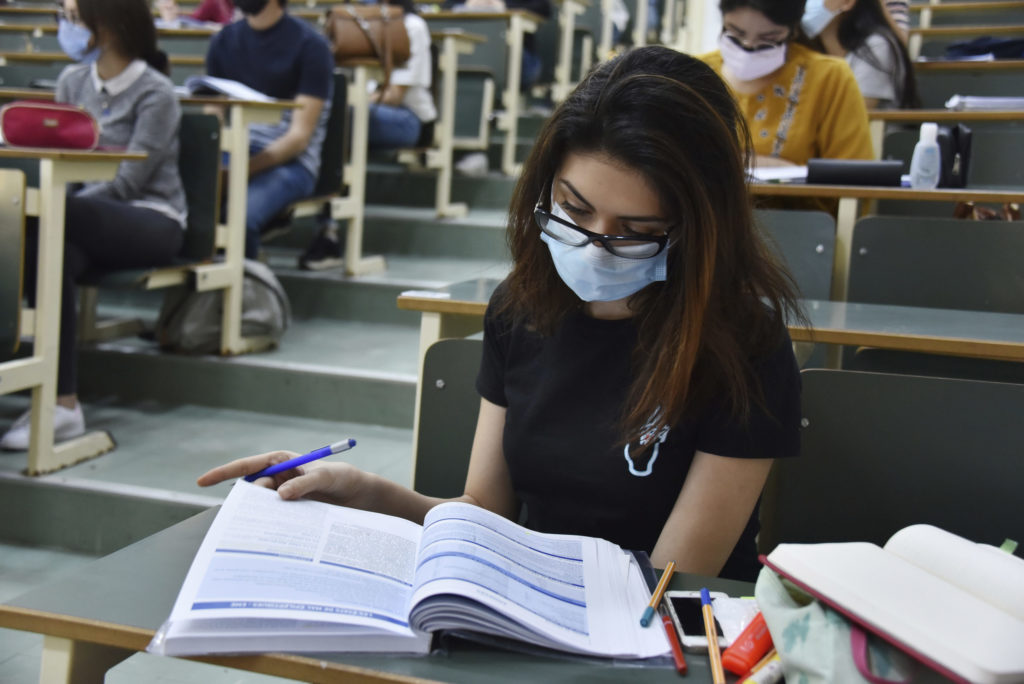The COVID Shock Doctrine on Higher Education

Mercifully this has not happened at my employer, but colleges and universities around the country have cynically used COVID to shock doctrine the humanities out of existence or near so, as well as destroy faculty autonomy.
Michael Francis Berube is the Edwin Erle Sparks Professor of Literature at Penn State University and a leader of the American Association of University Professors (AAUP). He calls this “a watershed moment” and describes the proposed cuts as a “structural assault on faculty autonomy.”
As chair of an AAUP committee that is investigating the attacks on faculty to determine if particular schools should be “censured,” the AAUP’s harshest classification and one that makes it difficult for them to fill open faculty positions, Berube notes that a lot of small, private, tuition-dependent schools were already in trouble before COVID, and were already looking at a reallocation of resources. “Some did it properly, with faculty input, but others kicked the can down the road and when COVID hit, they panicked,” he told Truthout. “There are procedures they should follow in catastrophes. We never say you can’t ever close programs, but we have to look at how plans are being implemented.”
Berube names Ohio’s John Carroll University as a particularly egregious example of bad process. “They got rid of art history and fired two tenured professors,” he said. “They claimed budgetary hardship, but the bar for declaring a budgetary hardship was so low that a 6 percent decline in revenue over three years was enough for them to act.” At the same time, he continues, the school has retained the law firm of Husch Blackwell — whose website boasts of being “aligned by industry,” with revenue of $417,056,000 in 2020 — as its legal counsel.
Berube also names Canisius College in upstate New York as “one of the worst of the worst.”
Philosophy, and women’s and gender studies professor Tanya Loughead has taught at Canisius for 15 years. “Six years ago, the college hired an outside, for-profit consultant to do what they called a ‘return on investment’ study. The company confirmed that faculty teach a lot of students, so by that metric, we are high performing,” Loughead told Truthout. Nonetheless, she says that faculty were shocked when the administration announced cuts, citing a projected $20 million shortfall. “The administrators never explained where they got that number,” Loughead says. “It seems like the height of capitalist exploitation to make precarious workers more precarious and assuming they’ll be willing to do just about anything to keep their jobs.”
Canisius has already closed three departments: classics, religious studies and physics, and 94 staff have been let go, including 24 faculty and 70 plumbers, electricians and groundskeepers.
Loughead says the college has not been transparent, so faculty are engaged in several different forms of fightback. “We’re pursuing censure with the AAUP, charging that the administration is not operating with shared governance in keeping with AAUP policies, and we’ve filed a lawsuit in New York State Supreme Court for Breach of Contract. We’ve also filed a complaint with the Middle States [Commission on] Higher Education authorities who accredit us.” What’s more, the Faculty Senate has voted ‘no confidence’ in the Trustees and President, a petition by alumni has collected more than 6,000 signatures, and Canisius Community Against the Cuts has brought parents, students, community members and alumni together in protest. Lastly, since Canisius is a Jesuit school, Jesuit Workers Against Austerity is attempting to make common cause with workers at all 27 denominationally-affiliated U.S. colleges.
Like Loughead, philosophy professor Corey McCall did not expect cutbacks at his Elmira College workplace. He had spent 14 years at the upstate New York college and told Truthout that he was blindsided when, “on June 1, I got an email from the provost saying that he and the president wanted to arrange a Zoom call with me on June 3. I had no idea why they wanted to talk. We had a brief call that day, and I was told I was being let go.” McCall had previously arranged to be a visiting professor at Penn State for the 2020-21 academic year, but he says that the news was nonetheless completely “shocking.”
COVID has indeed caused some financial hardship on colleges, but for the most part, it’s actually been less terrible than feared. Most of these plans were well underway at the administration level before the pandemic gave them the opportunity to implement them. It’s just a scary, terrible, awful time out there. At the same time that the lack of studying the humanities and social sciences manifests itself in the rise of fascism and the dominance of fake news on social media, the administrative class chooses to slash those very programs that could help save the nation in order to promote their own personal ambitions to move up in the grotesque world of higher education administration.


